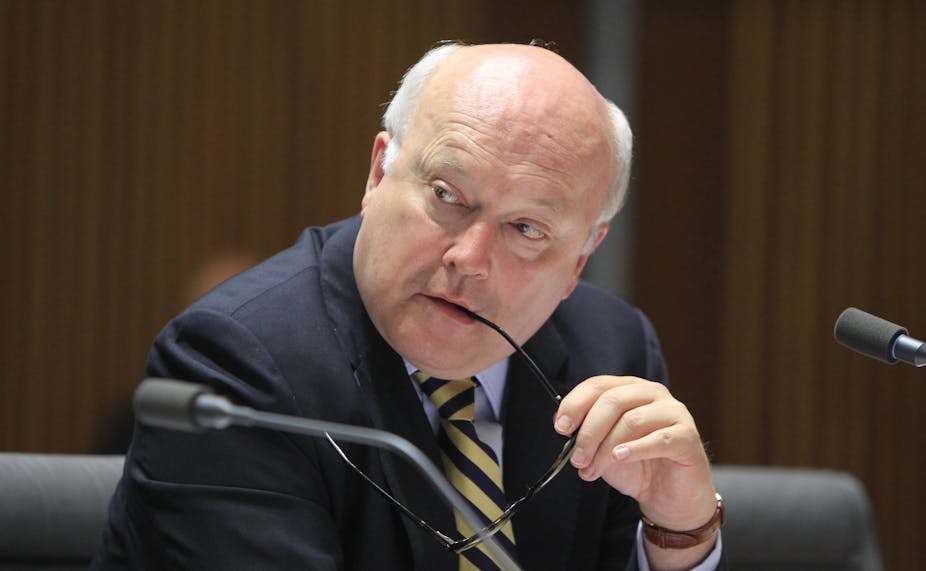This week the government’s new “freedom commissioner”, Tim Wilson, fresh from the Institute of Public Affairs, started at the Human Rights Commission, with the central task of promoting free speech and similar rights.
Also during the week, commission president Gillian Triggs was raising a different set of rights. After the Manus Island riots she urged there should be an independent panel to monitor conditions in detention centres.
The Abbott government believes there has been too much attention on that part of the “rights” agenda concerned with anti-discrimination and the like; it wants more focus on removing restrictions.
In fact both arms of the rights agenda are important; the issues will always be about priorities and where lines are drawn.
For Coalition MPs, the free speech debate galvanised with the 2011 court judgment against News Ltd columnist Andrew Bolt, who was found to have breached the Racial Discrimination Act with articles casting aspersions on the motives of “fair-skinned” Aborigines.
Section 18C of the racial discrimination legislation is very broad, covering any act “reasonably likely, in all the circumstances, to offend, insult, humiliate or intimidate another person or a group of people”. The decision in the Bolt case, which clearly compromised free speech, lit a fuse under the section.
Attorney-General George Brandis will soon take to cabinet proposals to remove the “Bolt” provisions, while strengthening the incitement part of the Criminal Code. He said recently: “Section 18C is unbalanced because it is too invasive of freedom of speech. And the current Criminal Code provisions are … inadequate because they are limited to the incitement of violence alone.”
But there is resistance to wholesale change to 18C from many quarters including ones the Liberals would see as sympathetic on some issues, such as the Australia/Israel and Jewish Affairs Council.
The council’s executive director, Colin Rubenstein, says that during its 19 years the act “has been remarkably successful and effective in enhancing cohesion. The only case that has been controversial and problematic has been the Bolt case.”
He said that, while the wording might be finessed, “we don’t want the baby thrown out with the bathwater. We’re all for freedom of speech, but understand there is a line to be drawn.”
Former Fraser government minister Neil Brown has also sounded a cautionary note, opposing outright repeal of the section.
The Coalition’s “freedom” push extends beyond free speech. It goes to preventing, or rolling back, what’s dubbed a “nanny state”.
But we’ve seen some recent contradictions.
For example, the government has had the Health Department take down a website that gave health ratings for food items. While the saga of the site is complicated, some in the Coalition see such labelling as a manifestation of nannyism.
On the other hand, the government is determined to create internet controls for parents so they can better police what their children see and do. Critics regard that as a big attack on freedom of speech.
Wilson said on the ABC’s Lateline this week that he believed the role of human rights was to “protect individuals from the encroachment and abuse of power by government”.
He was talking, in essence, about getting government off people’s backs.
Those currently concerned about the human rights of asylum seekers incarcerated at Manus and elsewhere fear another sort of abuse of power.
Detainees’ human rights are subjugated to the government’s wider purpose – which is to send out the strongest possible signal to deter people smuggling.
The approach has been to depersonalise the detainees as much as possible, so they don’t attract public sympathy. It’s not a new tactic – it was used in the Howard years, and once Labor toughened its policy.
It is epitomised by the government’s language – the use of the label “illegal arrivals” at every opportunity. While there has always been debate about terminology, “illegal” carries the connotation of criminality.
It is not just those who run people-smuggling operations who are attacked but the people who got on their boats, despite the fact many will eventually be found to be genuine refugees.
In this sort of atmosphere, attention to detainees’ rights is likely to be perfunctory. For the government, these people are a cohort to be managed, rather than individuals like the rest of us.
And when the management is taking place somewhere like Manus, in very difficult circumstances, their rights are likely to be even more at risk.
Abbott stressed on Thursday the overriding goal, declaring: “the Australian Government will not be deterred or intimidated by anyone when it comes to doing what we need to do to protect our borders. … We will not succumb to pressure, to moral blackmail.
"We will ensure these camps are run fairly, if necessary firmly … because the important thing and the fairest thing you can do for anyone is to stop the boats and to finally stamp out the evil trade of people smuggling.”
The Law Council of Australia has expressed grave concern about the Manus violence and called for independent oversight of detention facilities.
It said that “those seeking asylum in Australia, irrespective of where they are being processed and detained, should be treated with dignity and fairness in accordance with Australian and international standards”.
Independent oversight was important to ensure Australia’s system “operates effectively and efficiently, complies with rule of law principles, and protects the most basic rights of the individual”.
Triggs has not been able to visit Manus or Nauru under this government or the last because, she has been told, her jurisdiction does not extend outside Australia.
That makes it all the more important that there should be an independent monitoring system, to watch that the camps are indeed run “fairly”, with people accorded the human rights, including proper personal support, that decency and compassion demand.
Listen to the new Politics with Michelle Grattan podcast with guest Labor’s Immigration and Border Protection spokesman Richard Marles, here.

